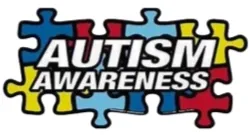Counseling for individuals and families throughout The State of New Jersey.
Counseling individuals and families throughout The State of New Jersey.
Life is a balance of holding on and letting go ~ Rumi
Blog
By Frank Healy
•
December 15, 2021
Most college students juggle their schoolwork with jobs, school activities, social life, and relationships. When it is time to study you need to remind yourself that this is all that you need to do now. Take some deep breaths to clear your head of distracting thoughts. When you have distracting thoughts, remind yourself that this is what minds do. Let the thoughts go and remind yourself that this is the time to focus on the material. It helps to stay in a quiet place and to study in the same place all the time. If the dorm room or Fraternity/Sorority house is too noisy go the library or another quiet place. Budget your time so you will spend enough time studying each subject to fare well. A general rule is to spend three times the amount of time in the classroom for each subject. For example, If you spend three hours a week in the classroom spend nine hours a week studying that subject. Naturally you will spend more time on a subject before a test or project is due, and less time for a few days afterwards. But classroom time times three should be the general rule. The best times to study are an hour or two hours before bed. When study is your last activity before bed you keep more information than if you concentrated on Facebook, a video game or other activity. You keep the last thing you learned because the brain had all night to process it while you slept. More importantly, do not compare yourself to other students. When I taught college students who struggled, they shared that they caught themselves not understanding a paragraph they had just read. Then they got discouraged and wanted to throw the book across the room. The problem was that they focused on their performance, and consequentially did not focus on the material. This led to frustration and poor performance. Don’t get down on yourself if you had to read the material over. Just accept that and read it again. Do not go to a party or any distracting activity the night before a test. When I was in college, students used to brag that they stayed up all night, went to a major league baseball game, or a concert the night before a test and still got an “A” on the test. I never believed any of it. Take a test when you are in the same physical, mental, and emotional state that you were in when you studied. There is a principle called State Dependent Memory. It means that you keep more information when you are in the same state as when you learned it. Many students study all night two nights before a test then get a good rest the night before so they will be well rested. This might seem like common sense. However, state dependent memory says if you studied tired you will remember more if you take the test tired. Multitasking is a myth. when people multitask they do not do any single task as well as when they do the task by itself. Study one subject at a time. If you have ADHD or a short attention span divide your time with each subject at short intervals. A half hour for each subject works. Finally, do not make studying the only thing you do. Have a social life and be in activities. College can be a challenging time.
By Frank Healy
•
December 15, 2021
When you look through old pictures, library cards, sports uniforms, instruments and other items that a loved one owned, it can be therapeutic to happily reminisce. This is because you think of the good times you had and feel gratitude for the memories. Get together with other family members or friends of your loved one because it will feel good for everyone to remember the good times that were had. When a memory of the person is triggered, you can allow yourself to be grateful for the experience. There are many ways that a memory can be triggered. It can happen when you go to a place you used to go with the person, such as a restaurant or a vacation destination. Let yourself feel happiness for the times you had with your loved one instead of thinking how bad it is that they are no longer with you. When you do feel mournful, accept the feeling. Even if you apply the first three techniques, there are probably going to be times when you feel sad, angry, or think about what might have saved the person. Don’t fight these feelings or judge yourself as selfish. Ironically, accepting how you feel often makes the sad feelings less intense. People who have experienced loss sometimes often believe that they have to stay sad all of the time. It is ok to give yourself permission to be happy when you feel happy without feeling guilty because you are having fun after you recently lost someone. Many people stay sad over a loss for years for basically two reasons. One is that they feel they need to stay sad to prove that they cared about the person who died. You can mourn for a short period of time and still care about your loved one who is no longer with you. A second reason people stay sad is because they think it is the only way to still feel connected to their deceased loved one. However, you can still feel connected by remembering the good times you had with them. Your memories will always stay with you. It is not necessary to judge anyone who does not act mournful at the funeral. People mourn and say goodbye to others in different ways. In India’s culture they mourn by lighting a candle and peacefully reflect on the life. It’s great that many funerals today display pictures of the person’s life. Consequentially, they make the funeral a celebration of life instead of a sad time. If you had a strained relationship with the person, don’t judge yourself for not feeling sad when they pass. Your feelings are not good or bad, they are just feelings. When most of your memories with the person are not pleasant ones, it is not necessary to feel sad or mourn. Many people say that when they lost a loved one there were things they left unsaid, such as they never told their parent they loved them. Many of the things people wish they had said were understood, particularly in close family relationships. If you took care of a sick parent or grandparent and they died they understand that you loved them. Sometimes young adults get impatient with a non ambulatory person they are taking care of. The person will understand if most of your interactions were positive. There are many ways to use your memories to help yourself through the loss of a loved one. You can enjoy thinking about the happy memories, and you do not have to stay angry, sad, or have regrets. Going through memorabilia is healthy and a great activity for the whole family to do.
By Karen Kerr
•
December 15, 2021
Often, individuals seek help because they feel besieged by the responsibilities that are put upon them as a parent, worker, spouse or even as an adult care-giver for an ailing parent. Living life out of balance can easily happen to anyone but for some it can lead to anger, frustration, stress, physical problems, depression, or anxiety. How can one achieve balance and find peace amongst chaos? A good place to begin might be to examine life in terms of your physical, mental, emotional and spiritual self. How are you taking care of yourself? Do you neglect any of these areas? Lately, whenever I speak to someone it seems many are running on empty because it is easy to disregard those different areas in life. In order for one to get grounded and manage all of the chaos and responsibilities of living life it is essential to make time for yourself. For example, you might want to take 10 minutes on your lunch hour and go for a walk, or decrease your use of caffeine or sugar. Sometimes making simple changes in diet or taking time for exercise can give you more energy and improve your mood. How do you pay attention to the emotional and mental side of yourself? You can begin this by using a simple daily affirmation such as “all is well in my world.” It may seem strange to you but positive affirmations tend to lift our mood and help us to stay focused and it can help you to have a positive outlook. According to an article published online in Psychology Today (May, 2013) author, Ray Williams reported on research results that demonstrated that the use of positive affirmations helped to reduce stress and assisted individuals in coping more effectively and enhanced problem solving abilities. One affirmation that I teach my clients is to use the statement “oh well” particularly when things do not always go as planned. That one simple statement, can immediately change your mood when you can begin to recognize that sometimes things are too beyond your control. Finally, what do you do to maintain a spiritual connection? For some this might mean attending weekly religious services or for others it can be about the development of faith or an understanding of a higher power as a way to help one achieve balance and order in life when it seems out of balance. Do you pray or meditate? These are simple methods that might help to strengthen one’s spiritual side. Paying attention to these different areas in your life can help you to make good decisions for yourself; bring order when life seems to be out of control, and give you peace and balance in the midst of feeling overwhelmed and stressed. Reference: Williams, R. (2013). Do Self-Affirmations Work? A revisit. Retrieved from: https://www.psychologytoday.com/blog/wired-success/201305/do-self-affirmations-work-revisit
By Karen Kerr
•
December 15, 2021
Anna Freud psychiatrist and daughter of well-known psychiatrist Sigmund Freud wrote “I was always looking outside of myself for strength and confidence, but it comes from within. It is there all the time.” This quote speaks to me because when I was younger I believed that self-esteem came through achievement, how much you weighed, your position in society or how much money you made. However, having accomplished much in life that has included completing the degree, obtaining a great job, making a good living and being at a normal weight helped me to learn that those were not the things that gave me the strength and confidence that I thought I lacked. The strength and confidence that I believed came as a result of obtaining my degree or reaching my goal weight never changed anything for me. What I failed to recognize is that my strength and confidence really did come from within because without it I never would have been able to pursue any of my life goals. It took great strength and confidence to go back to college at the age of 36. Millions of times I wanted to give up but I continued to push through, by just putting one foot in front of the other. It took strength and confidence to run in my first 5k and actually win it for my age group at the age of 30. It took strength and confidence to purchase my first home something that I mistakenly believed would never be possible. It took strength and confidence to believe that I had the ability to help care for both of my parents when they each were diagnosed with cancer. It took strength and confidence to cope with their deaths. Think about the changes you would like to make but perhaps you just don’t feel motivated. What are some of the negative messages you give to yourself? For example, if returning to college is a goal for you then take the step to reach out to the college of your choice and find out how you can enroll. Living in the digital age has made life simpler. It is probably a task you can complete with a click of a button. If organizing is something you want to achieve then start with making a list of things to accomplish. Completing simple tasks lends to motivation and often can give you the strength to tackle the next project. Maybe you a ready to embark on an entirely different career path than the one you are presently in but are filled with fear about making any kind of change. There is nothing wrong with going after what you feel you want. The point is that nothing changes if nothing changes. Life will continue to just happen and we never know what it will present to us. Many use faith, friends, or even counselors to help them cope with problems of daily living. What I believe we sometimes fail to remember is that more often than not we are more capable and more resilient than we realize. Strength and confidence can be found within if you have a strong determination to succeed, focus on the end result and each day do just one thing toward you goal. You will be amazed by what you can accomplish.
By Frank Healy
•
December 15, 2021
Have you ever been in an activity where you gave it all you have and then felt disappointed, depressed or let down when it ended? It could be a show that you were in, a championship game if you were in sports, or maybe you were the organizer of the office holiday party, which kept you busy and excited for two months. In order to understand what I am speaking of, I have divided these types of events into three stages. Stage one is the preparation stage, the performance stage and then the aftermath. When you are in the preparation stage you prepare for the event. You can experience excitement, nervousness, anxiousness, determination and drive. Often, you devote so much time to practice and organizing your task at hand that other things in your life sometimes become neglected. However, it is during this stage that you have a sense of purpose in your life. For example, if you are in a show your purpose is to give everyone the best performance that you can. If it is a championship game you want to beat the opposition and bring honor to your school, town or family. Both the actor and the athlete look forward to the applause. However, you may also hear a voice in your head that keeps you company. The voice reminds you that it’s time to practice or that you need to improve something in your game or presentation. It guides you through the preparation phase and helps you to stay motivated. Anxiety and excitement are closely related emotions. Many actors and athletes have shared that when they were ready to take the field or the stage they felt nervous. This nervousness can come from fear of making a mistake, but it is also contained excitement that the big moment is imminent. During the actual performance stage whether this is participating in some game or event the performer often becomes ecstatic and energy is high. All sense of time goes away and the individual has no awareness of anything outside of what they are doing. It is a great feeling. After the performance, the performer continues to feel good for the rest of the day or night but for some, a moment of accomplishment and excitement can often feel like a letdown after the event is over and this can happen as early as the next morning. It is at this time that a person who one day previous was feeling upbeat, excited and accomplished, now all of a sudden feels dread and depression can take over. Newlywed brides have sometimes described a feeling of letdown after their wedding that has lasted from a week to several months, in some cases. For one day, all of the attention is focused on them and then it’s over. For performers, the goal has been obtained and now there is nothing to strive for and the voice inside one’s head is alive and keeping company and then there is nothing to look forward to anymore. What do you do to avoid the letdown? Well, hopefully, someone attended your event that was able to take pictures of you and afterwards it can be helpful to take the time and spend it with family and friends who supported you during the event. It can be a time to share pictures and reminisce. You may also want to include people that were involved in the event such as teammates or colleagues. If you do this often for the first few days you will find that you need to do it less as the days go by. Call old friends whom you may not have seen for a while, spend time with your family if you neglected them leading up to your event and do activities that make you feel good. You will realize that you have many ways to feel good and one event does not need to be your only source for validation. This article is a great recourse for people who perform in shows, play sports, or tend to get so involved in an activity that a blah feeling may seem inevitable once it is over. Some of what I spoke of are good practical tips for helping yourself to avoid the letdown. Most important though is to remember your hard work and what you were able to accomplish!
By Karen Kerr
•
December 15, 2021
Abandonment issues can cut us to our core. Many don’t recognize that the abandonment one may have suffered in childhood can have a major negative effect impacting adulthood. Fear of abandonment or rejection can create fear, anger, anxiety and depression. As a result, relationships may be difficult to navigate, self-esteem is diminished and trusting others is never easy. Negative behaviors or other obsessive compulsive behaviors are very common for individuals who have experienced rejection or abandonment from a primary care giver during childhood. This abandonment can be the consequence of a parent leaving the home due to divorce, death or even illness. Physical abandonment is not always necessary; a child can suffer rejection through emotional abandonment such as being ignored or even rejection that one experiences through bullying. These types of occurrences can be traumatic for a child regardless of age. It is not uncommon for someone who has experienced childhood abandonment to self-sabotage relationships, careers, or friendships. When someone has difficulty trusting others there appears to be an unconscious need for the person to push others away. In a sense, the person will want to reject you first before you can reject them. If you have ever loved someone who has done this then you can understand how frustrating this can be but it is even more maddening for the person who is doing it because a person who has experienced abandonment really wants to feel safe, secure and more than ever to be loved and validated. Other signs that you may love someone with abandonment issues or have abandonment issues yourself is there is a strong need for control. Individuals may attach themselves too quickly, have a sense of neediness and they always give too much. When this person begins to feel that their partner is not reciprocating they will typically begin to resent the person and then set out to sabotage the relationship by creating emotional distance. When a person begins to distance from a partner emotionally it usually happens on an unconscious level. For example, one may notice some of these negative behaviors when arguments occur for no good reason or the person may find one negative aspect about their partner and then over focus on the flaw. There will be difficulty in communication and there is an expectation that a partner will commit 100% to them but they will have trouble committing to their partner. So, what is the answer? Simply, it may be found in what is known in the field of psychology as Attachment Theory. In the book Attached, The New Science of Adult Attachment and How it can Help you find and Keep Love (2011) authors, Amir Levine, M.D. and Rachel S.F. Heller, M.A. provide a very thorough understanding of adult attachment that is relatable to anyone who may be experiencing this. The authors provide comprehensive descriptions and good examples of the varied types of attachment styles that have been described as secure, avoidant and anxious. The book is a very good guide that can help someone understand their own attachment style and how it may be sabotaging significant relationships. They offer a solid approach to improve communication, deal with conflict, and skills to develop healthier relationship behaviors so that the abandonment issue does not continue to rule the relationship. A mental health professional may also be a valuable resource that can help you or a loved one break painful relationship patterns or help understand how you may be sabotaging relationships. Levin, Amir and Heller, Rachel S.F., (2011). Attached, The New Science of Adult Attachment and How It Can Help You Find and Keep Love. Penguin Group: New York, NY.
By Karen Kerr
•
December 15, 2021
“If people would only do what I want them to do, my life would be perfect?” How often have you found yourself muttering those words? If never, good for you! Clients tend to seek out counseling for a number of reasons. Frequently, symptoms may appear as depression, anxiety, stress, and anger. Often, some will present with a pattern of negative thinking that exhibits itself as low self-esteem, fatigue, guilt, fear, irritability, conflict with others, difficult relationship patterns or just feeling overwhelmed. Now, this isn’t to say that everyone who seeks counseling present with these symptoms. It is also important to also understand that these symptoms can be the result of one simply learning how to adjust to a new life situation such as the birth of a baby, marriage, divorce or even changing jobs. On the other hand, it is important to acknowledge that these types of symptoms can be indicative of a more serious problem such as trauma, bipolar disorder or other mental health difficulties that may need further assessment by a mental health professional. Therefore, this article is not suggesting a diagnosis of anyone it is merely the experience of this writer and discussion on the topic of CONTROL. Now ask yourself the question again. Wouldn’t life be perfect if only the people in your life would do what you wanted them to do? Think about it. I would guess you answered: YES!! If people did what you expected of them wouldn’t you have less stress and worry? If your children cleaned their rooms and put their things back where they belong the first time you ask, wouldn’t that be great? Wouldn’t life be wonderful if your spouse cooked dinner one night, helped with the laundry, helped pay the bills or even mowed the lawn? And what about your co-workers? Wouldn’t the day run smoother if your co-worker would show up on time and do their share of the work? YES!! I agree life would be more perfect if the people our lives did what we want them to do!! The problem is that while it sounds great on paper in theory it is not reality. The truth is we don’t have control over the people in our lives no matter who it is. We cannot control our spouse, our children, our friends, our co-worker, our boss not even the person who cuts us off in traffic. Consequently, the concept of control becomes a problem and will manifest itself in some of the symptoms mentioned above when we unconsciously think or behave in ways that have us believing that we do have control. For example, let’s say you made plans with a friend recently to meet her for lunch. You both have busy lives and you arranged your schedule to accommodate her hours because she works more. Isn’t it frustrating when your friend calls to cancel and waits until the last minute to notify you? In this situation, do you have control over your friend canceling? Absolutely not! What might happen if you responded to her unkindly? I would guess it might leave you feeling guilty about over reacting and then in turn it might leave you both feeling hurt and angry. What is the solution? The solution comes in the understanding of what we do and do not have control over. To illustrate, think of a large circle that represents all of the things that a person does not have control over: Traffic, weather, illness and time. We also don’t have control over other people and their thoughts, feelings, actions or judgments. In the inside of the circle is a smaller circle that represents the only thing we do have control over: our thoughts, our feelings and our behaviors. Therefore, the KEY is to realize that our superpower lies in how we choose to react and respond to the situations in life that we cannot control. Take a moment to think that idea over. What circle are you in when you are stressed out, anxious or irritable? Focusing on the things that you can’t control means you’re resisting to accept your reality: The only thing you’re capable of controlling is yourself. When we can choose not to overreact to the situations beyond our control, then life can be experienced as more serene. Stress levels will decrease, relationships improve and then we can truly experience all the good that life has to offer.

By Frank Healy
•
December 29, 2020
People throughout much of the United States may remember the winter of 2014-2015. It brought many days of snow shoveling, driving through ice, snow, and slush, or missing time from work due to school closings for the kids who had the day off. Many experienced the stress and worry regarding the safety of loved ones. Psychologically, this type of winter is one of the toughest kinds to endure. For many folks whom live in the Boston area there was so much snow that houses were buried as the result of one storm after another. The weather was consistently cold in most areas of the United States. Consequentially, people felt that they never had a break from shoveling, hazardous driving, rearranging work schedules, making arrangements for the children, and high heating bills. There are coping tools that you can use to handle the frequent stressors of winter. The best way is to find activities that you enjoy. Listen to your favorite music, get a massage, call people and go out socially even if it is a hassle to put coats, gloves and boots on. When you stay in the house you do not get the benefits of sunlight and fresh air, and you do not feel connected to the world. This can lead to depression. Having houseplants and pets can be an antidote to depression. Read a book, meditate, or do anything that will get the blood flowing. All of these activities help to alleviate depression, anxiety, and anger. Many people outside of northern latitudes judge winter as a bad time. However, it is the judging itself that makes winter seem depressing. If you just accept the fact that it is now winter but the snow and the cold will end this can make it easier. You can look for things to like about winter that you don’t get during the rest of the year. For example, you could notice the way the snow and ice look on the ground and the tree branches. You can appreciate the exercise when shoveling and the good feeling you get when you have completed it. Some people actually like driving in snow because they feel like they are meeting a challenge and conquering. It is all contingent on how you view it. Planning the future is another way to make the winter easier. Many people plan their summer vacations while it is still wintertime. Then you have the rest of the winter to look forward to it. Don’t let the weather determine how happy or unhappy you will be.
Let's Talk
Let's find a time when we can meet and talk about what's on your mind.
Fax
609-569-1510
Phone or Text
Send Mail To
P.O. Box 634
Absecon, NJ 08201
In-Office Consultations
6712 Washington Ave
Suite 305
Egg Harbor Township, NJ 08234
Mail is not accepted at this address.
Seaside Serenity Counseling LLC
© 2025
All Rights Reserved








